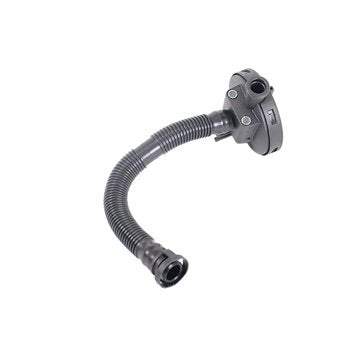Just How a Clp Engine Can Improve Performance in Different Industries
The development of CLP engines notes a significant shift in operational performance across numerous fields, driven by their ability to enhance fuel consumption and lessen downtime. As companies significantly prioritize sustainability along with efficiency, the role of CLP engines ends up being also a lot more critical.
Overview of CLP Engines
CLP engines, or Continual Fluid Propellant engines, represent a considerable development in propulsion technology, particularly for room applications. These engines make use of a constant feed system that permits the continual expulsion of propellant, bring about improved effectiveness and performance contrasted to conventional solid or hybrid propulsion systems. By keeping a continuous flow of fluid propellant, CLP engines can accomplish more specific drive control, which is important for maneuvering spacecraft in numerous objective scenarios.
The layout of CLP engines integrates innovative materials and innovative gas monitoring systems. clp engine. This results in minimized weight and enhanced integrity, necessary elements for long-duration room missions. The constant procedure minimizes the danger of combustion instability, a typical obstacle in conventional rocket engines.

Benefits in Manufacturing
The manufacturing of Continuous Fluid Propellant (CLP) engines offers numerous remarkable benefits that improve both effectiveness and cost-effectiveness. One of the primary benefits is the structured manufacturing process, which decreases the complexity related to typical propulsion systems. By making use of fluid propellant, makers can achieve greater accuracy in engine performance, leading to maximized power outcome and decreased waste.
Additionally, CLP engines promote a greater level of modularity, permitting for much easier combination into various production lines. This adaptability can dramatically reduce preparations and improve overall operational flexibility. Using CLP technology likewise tends to lessen the requirement for extensive upkeep due to less moving components, which equates right into minimized downtime and operational prices.

Applications in Logistics
Leveraging Continual Liquid Propellant (CLP) engines in logistics provides substantial benefits in operational efficiency and reliability. These engines offer a robust service for numerous transportation requirements, allowing the smooth movement of goods throughout substantial ranges. The integral layout of linked here CLP engines permits regular power outcome, which equates into smoother and much more foreseeable transport routines.
Among Discover More Here the key applications of CLP engines in logistics is in durable freight transportation, where they can drive both ground and airborne automobiles. Their capability to maintain high efficiency under varying load conditions makes certain that distribution timelines are satisfied, thus enhancing consumer contentment. Furthermore, CLP engines can be integrated right into automated logistics systems, promoting real-time monitoring and maximizing course planning.
In addition, the durability of CLP engines lowers maintenance downtime, allowing logistics firms to optimize their functional capabilities. This is specifically helpful in warehousing operations, where effectiveness in dealing with and transporting products is crucial. As logistics proceeds to develop, the integration of CLP engines stands for a forward-thinking approach that not just improves efficiency yet likewise sustains the market's expanding demands for integrity and speed.
Effect On Energy Performance
How do Constant Fluid Propellant (CLP) engines enhance power performance in transportation? CLP engines make use of a consistent flow of fluid fuel, enhancing burning procedures and maintaining a steady drive output. This design lessens power losses connected with conventional burning engines, where fuel delivery can vary and cause inadequacies.
The continuous operation of CLP engines permits a more efficient thermal cycle, leading to greater details impulse compared to conventional engines. clp engine. This equates to lowered gas consumption for the same amount of work done, dramatically decreasing operational expenses across different transport fields, consisting of aviation and maritime industries
Furthermore, the capability of CLP engines to preserve ideal performance under varying tons conditions minimizes the requirement for constant velocity and slowdown, additionally improving gas effectiveness. Enhanced power effectiveness not only adds to cost savings but also results in lower greenhouse gas emissions, aligning with global sustainability goals.
Future Trends and Innovations
Arising innovations in Continual Fluid Propellant (CLP) engine innovation pledge to reinvent the landscape of transportation effectiveness and sustainability. As industries pivot toward greener choices, CLP engines stand at the center, incorporating ingenious materials and layout techniques that enhance efficiency while decreasing ecological effect.
One of one of the most appealing trends is the fostering of crossbreed systems that integrate CLP engines with renewable resource sources. This synergy can maximize fuel consumption and lower discharges, aligning with international sustainability goals. Moreover, innovations in computational fluid dynamics (CFD) are promoting the style of look at this website more aerodynamically reliable engines, resulting in minimized drag and improved gas effectiveness.
In addition, the advancement of clever monitoring systems is established to enhance functional efficiencies. These systems take advantage of information analytics and IoT innovation to maximize engine performance in real-time, making sure that the engines operate within their most effective criteria.
As research proceeds to discover alternative propellant solutions-- such as biofuels and synthetic fuels-- the future of CLP engines looks encouraging. By harnessing these advancements, sectors can not only enhance their performance but likewise add dramatically to a cleaner, much more lasting future in transport.
Conclusion
In verdict, CLP engines stand for a substantial innovation in performance throughout numerous markets. The combination of sophisticated materials and fewer relocating components lessens upkeep demands, while alignment with sustainability goals placements CLP engines as a crucial modern technology for the future.
Comments on “Select a durable clp engine for better efficiency.”